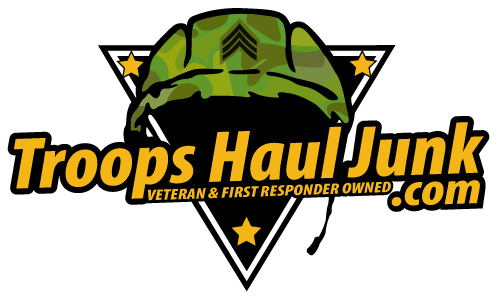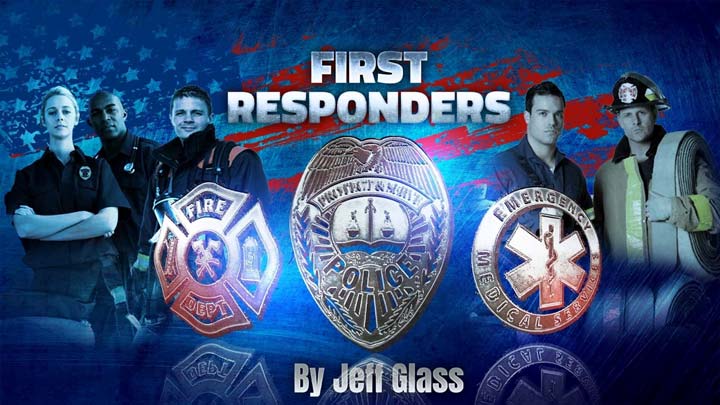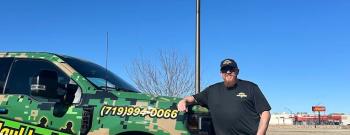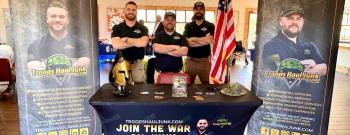First Responders: The Unsung Heroes of Our Society
“What most people do not understand is that you could be the biggest thug that ever existed but if you needed help, I would be there. I will show up when your friends won’t — or if they run away. I work with brave men and women who do the same. We go. We help. It is what we do.”
-Andrew L, Police Officer
Not all heroes wear capes or drive batmobiles. They are not always found on basketball courts or football fields. We do not see them often on TV or hear them singing at the Grammys.
We often take for granted the safety and security of our communities. It is only when we find ourselves in a crisis that we realize the significance of the work done by our first responders. Firefighters, EMTs, and police officers put their lives on the line every day to serve and protect our communities. These unsung heroes are the backbone of our society, and their importance cannot be overstated.
“Many first responders also serve as reservists in the Armed Forces of the United States, in addition to their regular duties. As a former serviceman, I have had the privilege of serving alongside EMTs, police officers, and firefighters on both domestic and international deployments. These dedicated individuals have various reasons for serving in dual roles, but they can generally be summed up into three categories. Some first responders choose to serve as reservists because it provides them with a second retirement pension, a practical consideration given the relatively low pay scale of their profession. Many first responders have a deep desire to serve their fellow human beings on a grander scale. They may choose to fight bad guys on a combat deployment, provide humanitarian aid, or participate in anti-human trafficking operations. Serving as reservists allows them to pursue these ambitions while also fulfilling their local community responsibilities. First responders who serve as reservists also benefit from the camaraderie and brotherhood that comes with serving with other like-minded individuals. As leaders and selfless servants, they crave the opportunity to create, be part of a team, and leave a legacy. By joining the reservists, they can continue to utilize their skills and experience, command a better salary, and be part of a broader brotherhood that ‘gets’ them. Serving as reservists allows our first responders to pursue their noble ambitions, both locally and internationally, and continue to serve with purpose and passion. We owe them a debt of gratitude for their unwavering dedication to their communities and their country.”
-Joseph Martinez, Co-founder of Troops Haul Junk
Firefighters are among the first responders who risk their lives to protect people and property. They are called to the scene of a fire, where they use their skills and expertise to put out the blaze and prevent further damage. This is an incredibly dangerous job that requires bravery, quick thinking, and exceptional physical fitness. Firefighters often work long hours, and the work is physically demanding. They need to be prepared to handle all sorts of emergencies, including house fires, wildfires, car crashes, and medical emergencies.
EMTs, on the other hand, are trained to respond to medical emergencies. They are the first line of defense in providing medical care to those in need. EMTs are often the first to arrive at the scene of an accident or medical emergency, and their quick thinking and medical expertise can be the difference between life and death. They provide a wide range of medical services, from basic first aid to advanced life support. They work in high-pressure situations and often deal with patients who are in critical condition. EMTs are highly skilled professionals who are trained to provide medical care in a variety of settings, from the ambulance to the emergency room.
“A teenage boy was enjoying an evening at home watching football with his family when he suddenly went into cardiac arrest. I made the decision to transport, even though normally this is not standard procedure due to him being a minor. We transported him to the hospital via ambulance. Once we arrived in the emergency room, the physician initially wanted to pronounce him deceased. I offered to give the physician our automatic compression device because they had limited resources. We had pulses on the way to the hospital, but upon arrival, the boy was not responding. Upon reassessment, which we teach in our classes, while we were using the cardiac monitor, I was kicked in the back of the head by the patient’s foot. I was shocked to see him attempting to climb off the bed; this was a great sign of neurological function and chances of survival increased. He was flown to Stanford for further cardiac treatment, released home, and is living a healthy, active life. It was an honor to be reunited with him for his graduation.”
-Matt V, EMT, Firefighter
Police officers are another essential component of our first responder community. They are responsible for maintaining law and order and protecting the public. Police officers are often called to deal with dangerous situations, such as armed robberies, hostage situations, and high-speed car chases. They are trained to use force when necessary to protect themselves and others. They are also responsible for investigating crimes and arresting suspects. Police work is incredibly demanding, and officers often work long hours in dangerous situations.
“I’m the police, and I’m here to arrest you. You’ve broken the law. I did not write the law. I may even disagree with the law but I will enforce it and no matter how you plead, beg, or attempt to stir my sympathies, nothing you do will stop me from placing you in a steel cage with grey bars. If you run away, I will chase you. If you fight me, I will fight back. If you shoot at me, I will shoot back. By law, I am unable to walk away. I am a consequence. I am the unpaid bill. I am fate with a badge and a gun. Behind my badge is a heart like yours. I bleed, I think, I love, and yes, I can be killed. And although I am but one man, I have thousands of brothers and sisters who are the same as me. They will lay down their lives for me, and I them. We stand watch together, a thin blue line, protecting the prey from the predators, the good from the bad. We are the police.”
-Officer Taylor, End of Watch
The work of first responders is incredibly dangerous and requires a high degree of skill, knowledge, and expertise. They put themselves in harm’s way to protect us and our communities. They are often exposed to dangerous chemicals, fire, and other hazards that can cause long-term health problems. Despite the risks, they continue to serve our communities with courage and dedication.
One of the most significant dangers faced by first responders is the risk of injury or death. Firefighters, for example, risk their lives every time they enter a burning building. They can be trapped by falling debris, suffer burns, or become disoriented and lost. EMTs and paramedics are also at risk of injury, especially when dealing with violent patients or working in hazardous environments. Police officers face the danger of gunfire, car accidents, and other hazards associated with law enforcement.
Another danger faced by first responders is the risk of mental health problems. The nature of their work often exposes them to traumatic events, which can lead to post-traumatic stress disorder (PTSD) and other mental health issues. PTSD is a severe mental health condition that can occur after an individual experiences a traumatic event or series of events. First responders are at a higher risk of developing PTSD due to the nature of their work, where they are regularly exposed to potentially traumatic events. This can lead to anxiety, depression, flashbacks, and nightmares.
The hardship of balancing work and family life is also a significant issue faced by first responders. First responders often work long, irregular hours, and the demands of their work can cause stress on their families. This stress can be further exacerbated by the potential for traumatic events and the risk of injury or death associated with their work. First responders must find ways to balance their work and family life to maintain their mental health and well-being.
Studies have shown that first responders are more likely to experience mental health issues than the general population. In fact, studies have found that first responders are at a higher risk of suicide than any other profession. The constant exposure to potentially traumatic events, coupled with the stress of their work, can take a significant toll on their mental health.
Despite these challenges, first responders continue to serve our communities with courage and dedication. They solve problems that others cannot and save lives every day. Their work is essential to the safety and security of our communities, and we must show them our support and gratitude. We can do this by recognizing their sacrifices, providing them with the resources they need to do their job, and advocating for their rights.
In conclusion, first responders are an essential part of our society. They risk their lives every day to keep us safe, and they are the unsung heroes of our communities. We must appreciate their sacrifice and service, and we must support them in every way possible. We must also acknowledge the challenges they face, including physical and emotional stress, long hours, and inadequate resources.
We must recognize and value the work of our first responders, and we should honor them for their dedication and bravery. We must also work to improve the systems that support them, including better training, equipment, and compensation. By doing so, we can ensure that our communities are safer and more secure, and that our first responders are better equipped to face the challenges of their jobs.
Established in 1984, the National Law Enforcement Officers Memorial Fund is a non-profit organization dedicated to telling the story of American law enforcement and making it safer for those who serve. The Memorial Fund maintains the National Law Enforcement Officers Memorial in Washington, D.C., which honors the names of all of the 22,000+ officers who have died in the line of duty throughout U.S. history. The National Law Enforcement Museum (LawEnforcementMuseum.org) at the Motorola Solutions Foundation Building is committed to preserving the history of American law enforcement and sharing the experiences of service and sacrifice for generations to come. (source: NLEOOMF.org)
In the end, the work of first responders is about more than just saving lives; it is about making a difference in the world. It is about being there for people in their time of need, and it is about giving back to the communities while maintaining safety and health for fellow Americans. By supporting our first responders, we can help them continue to make a positive impact on the lives of others.







